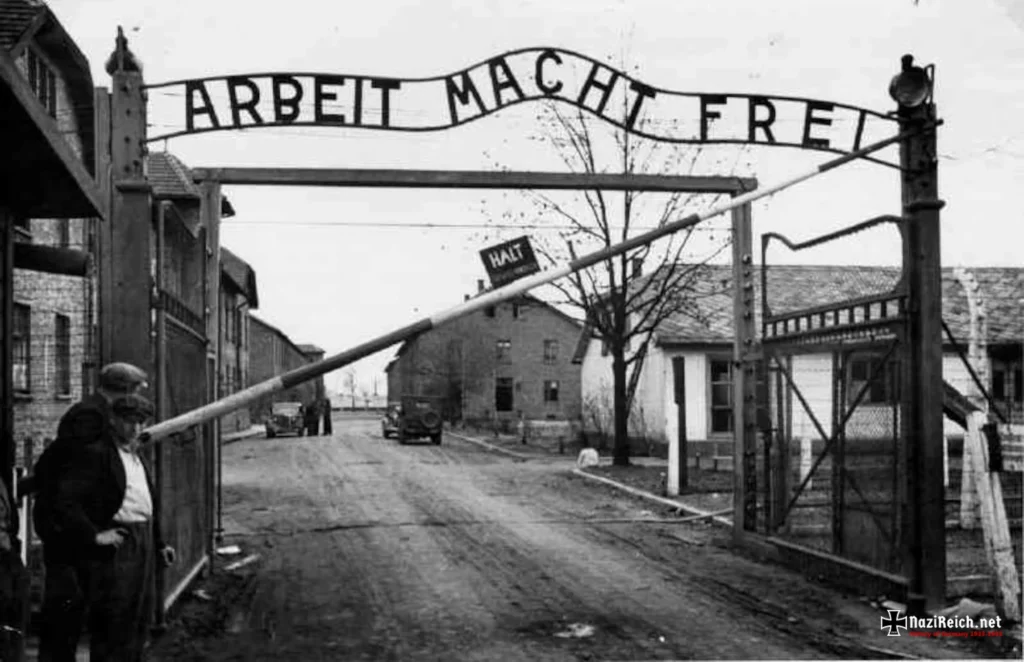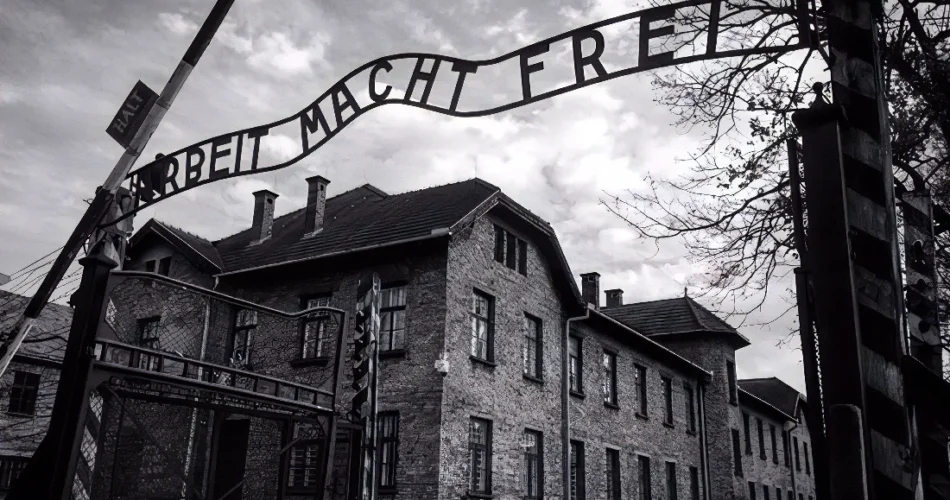The phrase “Arbeit macht frei” (Work sets you free), displayed at the entrance of Auschwitz and other Nazi concentration camps, holds a deep and sinister significance beyond its literal meaning. This phrase encapsulates the cruel irony and deception that characterized the Nazi approach to forced labor and imprisonment.

- 📜 Historical Usage and Misinterpretation: The origins of “Arbeit macht frei” can be traced back to the 19th century, gaining prominence from a novel by Lorenz Diefenbach, where it was used in a benign context. The Nazis appropriated this phrase, distorting its meaning for their own propagandistic purposes.
- 🕊️ Symbolic Deception at Auschwitz: Initially placed at the entrance of Dachau in 1933, and later at Auschwitz, the slogan was meant to give a false sense of hope to prisoners that through hard work, they could earn their freedom. In reality, it marked the beginning of a torturous ordeal that for many led to death rather than freedom.
- 🛠️ Psychological Manipulation: The slogan was part of a broader Nazi strategy to psychologically manipulate prisoners by instilling in them the belief that their survival was tied to their ability to work. This was meant to incentivize productivity and compliance among the camp inmates.
- 🎭 Cruel Irony for the Prisoners: For the prisoners, especially the Jewish inmates, the promise embedded in “Arbeit macht frei” was a cruel joke. It represented a perverse moral inversion where the victims of brutal oppression were led to believe that their salvation lay in the very work that contributed to their dehumanization and destruction.
- 🔍 Misleading Historical Narratives: The true intent behind this slogan was obscured by the Nazis’ efforts to portray the camps as labor and re-education camps rather than sites of genocide. This misrepresentation was aimed at both the external world and the prisoners themselves, masking the industrial scale of their atrocities.
The phrase “Arbeit macht frei” thus stands as a stark example of the cynical and sinister nature of Nazi propaganda, a false promise of freedom that in reality marked the entrance to some of the worst atrocities committed in human history.
